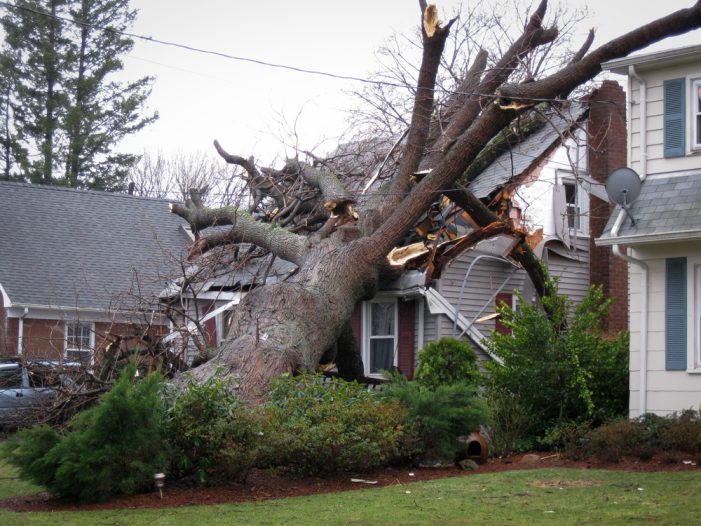By: Equity Smart Realty Inc
Trees are often a beloved feature of residential properties. They provide shade, privacy, and aesthetic appeal. However, when nature strikes—or when decay or neglect takes its toll—a tree can become more than just a landscaping feature; it can become a legal and financial liability. A common question homeowners face is: Who pays when a tree from my property falls and damages my neighbor’s home, car, or fence?
Understanding responsibility for fallen tree damage involves examining property laws, insurance coverage, and whether or not negligence played a role. Let’s break down the important factors that determine liability and what steps you can take to protect yourself.
Who Owns the Tree?
The first and most important consideration is ownership. If the tree trunk is entirely on your property, it’s your tree—even if its branches stretch into your neighbor’s yard. If the tree sits directly on the property line, it may be considered jointly owned, and responsibility could be shared.
When your tree—or even just a branch—falls and causes damage, the key issue becomes whether the incident was an act of nature or the result of your negligence.
Natural Causes vs. Negligence
In most cases, homeowners are not liable for damage caused by a healthy tree that falls during a storm or other natural event. This is typically viewed as an “act of God,” meaning no one is at fault. In such scenarios, your neighbor’s homeowner’s insurance would generally cover the damage to their property, not yours.
However, you could be held liable if it can be shown that:
- The tree was dead or dying and posed a known risk.
- You failed to maintain the tree or ignored warnings.
- There were visible signs of decay, disease, or instability.
- Your neighbor had previously complained about the tree’s condition or danger.
In these cases, the fallen tree might no longer be considered an unavoidable event but rather a preventable hazard, making you financially responsible for the damage.
What Will Insurance Cover?
Homeowners’ insurance typically covers damage caused by falling trees or limbs—but how it applies depends on the circumstances:
- If the tree falls on your neighbor’s property due to natural causes: Your neighbor will file a claim with their own insurance provider. Their insurer will likely cover the repair costs, subject to their deductible.
- If the tree falls due to your negligence: Your liability coverage under your homeowner’s policy may be triggered, covering your neighbor’s repair costs.
Important to note:
- Tree removal is often not covered unless the fallen tree causes damage to a covered structure.
- Your policy may also not cover tree removal from your neighbor’s property unless your tree caused the damage.
Preventative Measures Homeowners Should Take
To avoid potential liability and maintain good neighborly relations, proactive tree maintenance is essential. Here’s what you should do:
- Inspect trees regularly for signs of disease or structural weakness.
- Trim branches that overhang property lines, roofs, or power lines.
- Hire certified arborists to evaluate large or aging trees.
- Respond promptly to any neighbor concerns about tree safety.
- Keep documentation of tree maintenance and professional inspections.
By taking reasonable care of your trees, you reduce the risk of property damage and also protect yourself legally.
What If Your Neighbor’s Tree Falls on Your Property?
The same general principles apply. If your neighbor’s healthy tree falls during a storm, you are responsible for your own property damage—even though you didn’t own the tree. However, if the tree was dead, dying, or neglected, you may have grounds to seek compensation from your neighbor’s insurance or even pursue legal action if negligence can be proven.
If you’re in doubt about your legal standing or want to document ongoing concerns with a neighboring tree, it’s wise to consult with a real estate attorney who specializes in property damage and liability issues.
How Disputes Arise—and How to Resolve Them
Fallen tree incidents often spark disputes between neighbors. Tensions can arise over responsibility, insurance payouts, and whether a tree was hazardous before it fell. These disputes can escalate, especially if one party is facing out-of-pocket expenses.
Common disputes include:
- Disagreements over tree ownership
- Insurance companies denying liability
- Accusations of negligence
- Boundary line disputes
To resolve these matters, you may need legal support. A lawyer can help establish liability, communicate with insurers, and take necessary legal steps if your claims are being ignored or denied.
Why Figeroux & Associates Should Be Your First Call
When property damage strikes—especially involving fallen trees and complex liability issues—you need legal counsel that understands both real estate law and insurance claims. Figeroux & Associates, located at 26 Court Street, Suite 701, Brooklyn, NY, 11242, provides expert legal services for homeowners dealing with property disputes, insurance denials, and liability claims.
Their experienced team helps clients:
- Determine who is legally responsible for property damage
- Review and interpret homeowner’s insurance policies
- Negotiate or litigate with insurance providers
- Represent clients in disputes with neighbors
- Handle property line and ownership issues
Whether you need help responding to a neighbor’s claim or believe another property owner’s tree caused you financial loss, Figeroux & Associates provides the guidance and representation you need. You can reach their office at 855-768-8845 or visit their website at www.askthelawyer.us to request a consultation.
Conclusion: Protecting Yourself, Your Trees, and Your Property
While trees can enhance your home’s beauty and value, they can also become sources of conflict and costly damage when they fall. The key to determining who pays lies in understanding ownership, cause, and insurance coverage. In most cases, your neighbor will handle their own damage—unless you’ve been negligent in maintaining your trees.
Taking preventative steps, keeping communication open with your neighbors, and being aware of your legal responsibilities can help you avoid disputes and financial liability. And if things get complicated, don’t hesitate to consult legal professionals like Figeroux & Associates who specialize in property-related law and insurance claims.


